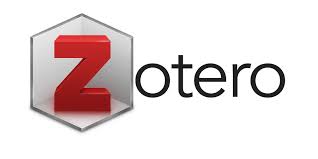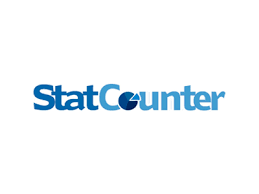Pengembangan Lembar Kerja Peserta Didik (LKPD) dengan Soal Kontekstual Ditinjau dari Kemampuan Berpikir Kritis Peserta Didik
DOI:
https://doi.org/10.29240/ja.v6i1.7577Keywords:
LKPD, Contextual, Critical Thinking AbilitiesAbstract
This research aims to develop Student Worksheets (LKPD) that utilize contextual problems in teaching plane geometry (quadrilaterals & triangles) while considering students' critical thinking abilities. The study adopts a Research and Development (R&D) approach with the 4D development model, which includes the Define, Design, Development, and Disseminate phases. The research was conducted at SMP Negeri 1 Batanghari with a sample of 10 students from class VII.3. The research instruments used in this study include expert validation questionnaires to assess the validity of the LKPD, student response questionnaires to measure the practicality of the LKPD and six essay-type test items to measure the effectiveness of the LKPD. The research findings indicate that the developed LKPD has high quality in terms of validity. The overall average scores from material and media expert validation were 3.675 and 3.275, respectively. Furthermore, the student response questionnaire showed that the LKPD meets the practicality criteria with an overall average score of 2.95. Regarding effectiveness, the test results demonstrate that the LKPD is effective with, a learning mastery rate of 60%, which falls into the category of reasonably good.
Downloads
References
Ageng Sanjaya, A., & Sutiarso, S. (2017). Pengembangan LKPD untuk Mendukung Model PBL Ditinjau dari Kemampuan Berpikir Kritis Matematis. Jurnal Pendidikan Matematika Unila, 5(10). Retrieved from http://jurnal.fkip.unila.ac.id/index.php/MTK/article/view/14510
Azizah, M., Cintang, N., & Sulianto, J. (2018). Analisis Keterampilan Berpikir Kritis Siswa Sekolah Dasar pada Pembelajaran Matematika Kurikulum 2013. Jurnal Penelitian Pendidikan, 35(1). Retrieved from https://doi.org/10.15294/jpp.v35i1.13529
Ennis, R. (1991). Critical Thinking: A Streamlined Conception. Teaching Philosopy. Retrieved from http://dx.doi.org/10.5840/teachphil19911412
Haryoko, S., & Jaya, H. (2017). Pengembangan Media Ajar pada Mata Kuliah Pengantar Pendidikan Kejuruan. Jurnal MEKOM (Media Komunikasi Pendidikan Kejuruan), 4(2), 105. Retrieved from https://doi.org/10.26858/mekom.v4i2.5134
Heri Setiawan, R., & Harta, I. (2014). Pengaruh Pendekatan Open-Ended dan Pendekatan Kontekstual Terhadap Kemampuan Pemecahan Masalah dan Sikap Siswa Terhadap Matematika. Jurnal Riset Pendidikan Matematika, 1(2), 244. Retrieved from https://doi.org/10.21831/jrpm.v1i2.2679
Kartikasari, N. (2020). Pengembangan Lembar Kerja Peserta Didik (LKPD) Berbasis Pendekatan Realistic Mathematics Education (RME) pada Materi Luas Bangun Datar Kelas IV SDN 3 Talok. Prosiding Seminar Nasional PGSD UNIKAMA, 4(1), 4. Retrieved from https://conference.unikama.ac.id/artikel/index.php/pgsd/article/view/501
Kurnia Liztari, D., Somakim, S., & Aisyah, N. (2018). Pengembangan LKS Matematika Menggunakan Strategi PQ4R pada Materi Bangun Datar di SMP. Sriwijaya University, Palembang. Retrieved from https://repository.unsri.ac.id/9959
Lestari, N. (2018). Prosedural Mengadopsi Model 4D dari Thiagarajan Suatu Studi Pengembangan LKM Bioteknologi Menggunakan Model PBL bagi Mahasiswa. Jurnal Teknologi, 1(1), 56–65. Retrieved from https://ejurnal.undana.ac.id/index.php/jurnal_teknologi/article/view/1170
Musbihin, M. (2017). Pengembangan Lembar Kerja Siswa (LKS) Menggunakan Pendekatan Contextual Teaching and Learning (CTL) pada Materi Pokok Himpunan dengan Soal-Soal Berbasis Berpikir Kritis Matematis untuk MTs/SMP. UIN Raden Intan Lampung, Lampung. Retrieved from http://repository.radenintan.ac.id/726/
Netti, E. (2017). Penggunaan Media Lembar Kerja Siswa (LKS) dalam Meningkatkan Hasil Belajar Sosiologi Siswa Kelas XI SMAN 15 Pekanbaru. Jurnal Pendidikan, 8(1), 41. Retrieved from http://dx.doi.org/10.31258/jp.8.1.37-45
Putro Widoyoko, E. (2020). Teknik Penyusunan Instrumen Penelitian. Yogyakarta: Pustaka Pelajar
Rosna, A. (2016). Meningkatkan Hasil Belajar Siswa Melalui Pembelajaran Kooperatif pada Mata Pelajaran IPA di Kelas IV SD Terpencil Bainaa Barat. Jurnal Kreatif Tadulako, 4(7), 237. Retrieved from https://www.neliti.com/id/publications/118217/meningkatkan-hasil-belajar-siswa-melalui-pembelajaran-kooperatif-pada-mata-pelaj#id-section-content
Sari Dewi, K., Wildaniati, Y., & Hadi, M. (2022). Pengembangan LKPD Geometri Berbasis Etnomatematika ditinjau dari Kemampuan Berpikir Kritis. LINEAR: Journal of Mathematics Education, 3(1), 1. Retrieved from https://doi.org/10.32332/linear.v3i1.4816
Sri Mahardiningrum, A., & Ratu, N. (2018). Profil Pemecahan Masalah Matematika Siswa SMP Pangudi Luhur Salatiga ditinjau dari Berpikir Kritis. MOSHARAFA Jurnal Pendidikan Matematika, 7(1), 75–84. Retrieved from https://www.neliti.com/publications/226583/profil-pemecahan-masalah-matematika-siswa-smp-pangudi-luhur-salatiga-ditinjau-da
Sugiyono, S. (2012). Metode Penelitian Pendidikan Kualitatif, Kuantitatif, dan R&D. Bandung: Alfabeta
Suhartini, S., & Martyanti, A. (2017). Meningkatkan Kemampuan Berpikir Kritis pada Pembelajaran Geometri Berbasis Etnomatematika. Jurnal Gantang, 2(2), 108. Retrieved from https://doi.org/10.31629/jg.v2i2.198
Triyas Admadianti, N. (2016). Pengembangan Modul Teknologi Mekanik untuk Meningkatkan Hasil Belajar Siswa Kelas X Teknik Permesinan SMK Negeri 3 Buduran Sidoarjo. JPTM, 5(2), 65. Retrieved from https://ejournal.unesa.ac.id/index.php/jurnal-pendidikan-teknik-mesin/article/view/17655
Widayati, H. (2020). Pengembangan LKPD Matematika Berbasis Higher Order Thinking Skills (HOTS) Materi Segiempat Kelas VII E SMP Negeri 2 Ngemplak. Yogyakarta: Sanata Dharma University. Retrieved from https://repository.usd.ac.id/37339/
Downloads
Published
Issue
Section
Citation Check
License
Copyright (c) 2024 Veni Mai Syaroh, Juitaning Mustika

This work is licensed under a Creative Commons Attribution-NonCommercial-ShareAlike 4.0 International License.
Authors who publish with ARITHMETIC: Academic Journal of Math agree to the following terms:
- Authors retain copyright and grant the journal right of first publication with the work simultaneously licensed under a Creative Commons Attribution-NonCommercial-ShareAlike 4.0 International License (CC BY-NC-SA 4.0) that allows others to share the work with an acknowledgment of the work's authorship and initial publication in this journal.
- Authors are able to enter into separate, additional contractual arrangements for the non-exclusive distribution of the journal's published version of the work (e.g., post it to an institutional repository or publish it in a book), with an acknowledgment of its initial publication in this journal.
- Authors are permitted and encouraged to post their work online (e.g., in institutional repositories or on their website) prior to and during the submission process, as it can lead to productive exchanges, as well as earlier and greater citation of published work (See The Effect of Open Access).







